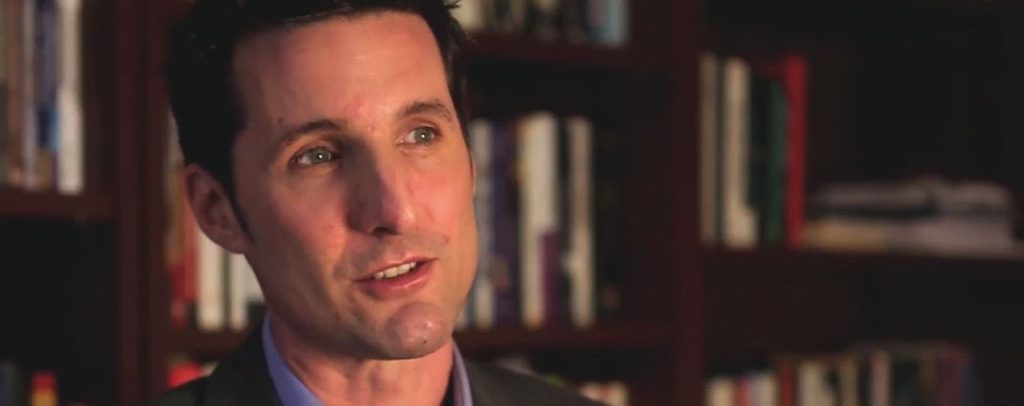
The Theology and Politics of a Common Life
Originally from West London, Luke Bretherton is professor of theological ethics at Duke Divinity School in the United States. He writes here about the thinking behind his book, Christ and the Common Life, which makes the case for Christians to take up democratic politics as a way of pursuing a common life and in doing so, to fulfil their call to love God and neighbour.
Beyond Respectability, Denunciation and Escape: The Theology and Politics of a Common Life
When most people use the word “politics” or “democracy” they tend to think of party politics, the machinations taking place in Westminster or Washington, and the intractable debates that fill the news cycle. In Christ and the Common Life I propose an older and richer way of understanding democratic politics, one that sees it as a way of solving shared problems and negotiating a common life between friends, strangers and enemies.
Democracy is an attempt to answer a basic challenge we are confronted with when encountering others not like us or with whom we disagree. We can either kill them, or we can create systems of domination to coerce them into doing what we want, or we can form some kind of common life with them through politics. Christians can and should go about taking up democratic politics as a way of pursuing this third option, and in doing so, fulfil their fundamental call to love God and neighbour.
There are three core questions that confront people of faith when it comes to any kind of politics. These are first, how should we respond to the suffering, injustice and poverty we either experience ourselves or we see around us? Second, how do we forge a common life with those not like us? And, lastly, how can we transform constructively imbalances of power so that a more just and loving form of life might emerge, one in which the flourishing of each is recognised as connected to the flourishing of all? Christians down the ages, and in the contemporary context, have addressed these questions in various ways.
I find it helpful to explore how each of these questions demands both a political and a theological response, and how these responses intersect with each other. It is also important to understand how democracy came to be seen by Christians as an expression of neighbour love. This is especially important in the contemporary context when democracy itself is under threat.
Many around the world, including Christians, are renouncing democracy and aligning themselves with authoritarian movements of one kind or another, or questioning the relevance of democracy as a way of addressing shared problems such as climate change or economic inequality. Rather than despair, it is important to articulate a vision for the kind of politics that requires actively listening and talking to and forming relationship with those not like us and with whom we disagree. This is the approach I argue for and it contrasts sharply with the current ways many Christians in Britain and North America practise politics.
Some engage in what can be called a politics of respectability, influenced as they are by dominant church cultures of being polite and deferent to those in authority. Such an approach goes wrong when we end up with churches and a theology that teach us how to govern ourselves better instead of how to seek better forms of government.
Others practice a politics of denunciation that refuses to listen because they already know who the enemy is, what the solution should be, and refuse to acknowledge that the wrong is not all on one side. Instead they demand that you take their side. Anyone who asks questions or tries to have a more nuanced understanding is denounced as either a reactionary or a progressive – depending on your ideology. A polarised and denunciatory politics sees any form of compromise as a failure, or worse, treachery.
Still others avoid listening to, and hearing the cries of their neighbours, choosing to ignore the need for a just and loving form of shared life to be cultivated. They avoid addressing the need for change by retreating into sectarian enclaves, gated communities, escapist theologies or apocalyptic dreams.
Against such all too common approaches, we need to cultivate a common life democratic politics.
To address this need, Christ and the Common Life begins with a discussion of how we should understand the meaning and purpose of politics in theological terms. It then goes on to examine five case studies—humanitarianism, Black Power, Pentecostalism, Catholic social teaching, and Anglicanism—each of which exemplifies a different approach to political engagement and way of understanding the relationship between Christianity and politics. I then discuss challenges to coexistence, reflecting on central features of contemporary democratic life, such as tolerance and secularity. Woven into these chapters are analysis of debates concerning issues such as racism, economic inequality, the environment, and interfaith relations. In a final section I discuss the building blocks of democracy, notably sovereignty, peoplehood, economics, and the notion of a shared humanity.
My motivation is to provide political and theological resources to support Christians attempting to make a faithful, hopeful and loving response to these “dark times.” Along the way I offer a theological basis for, and a radical revisioning of, the relationship between Christianity and democracy. It is one that opens up a way through which Christians can speak and act faithfully within the contemporary context, and at the same time pursue a just and compassionate common life with others who don’t share their beliefs and practices.
Luke Bretherton
Christ and the Common Life: Political Theology and the Case for Democracy (Luke Bretherton, Eerdmans, 2019)
